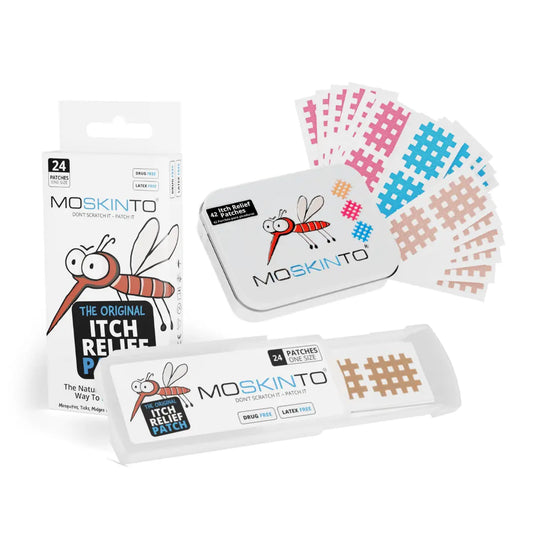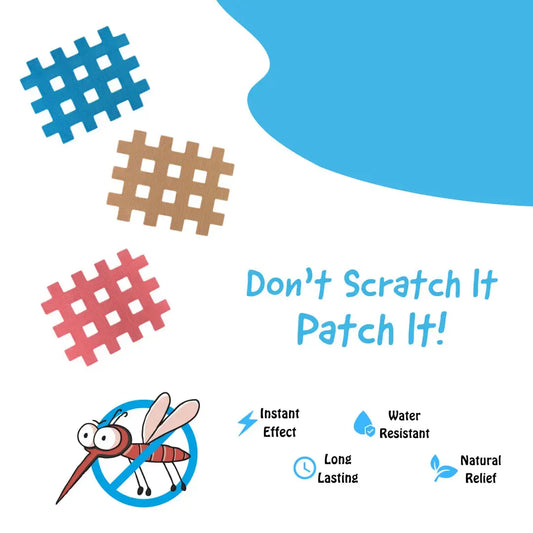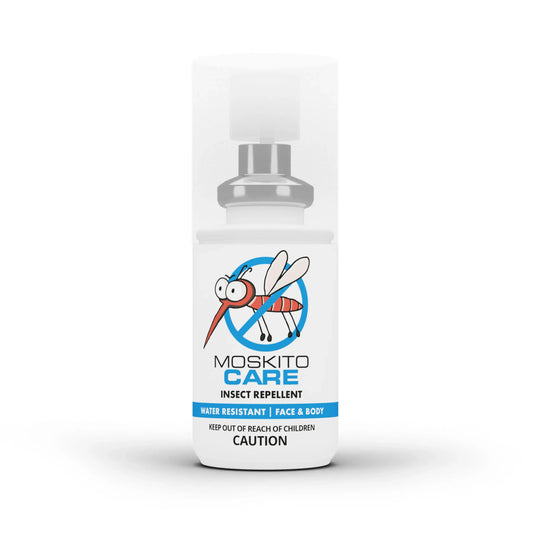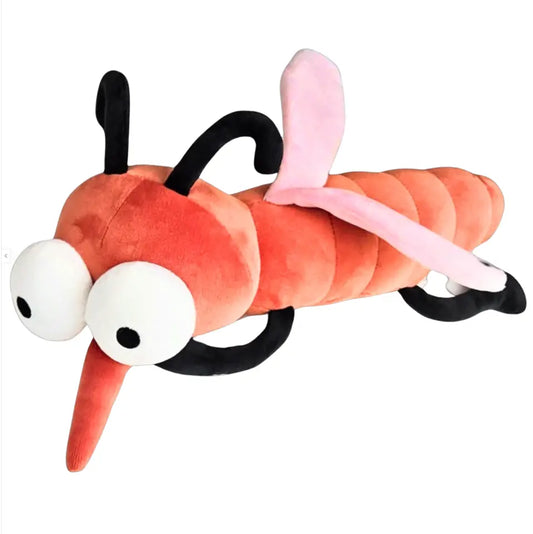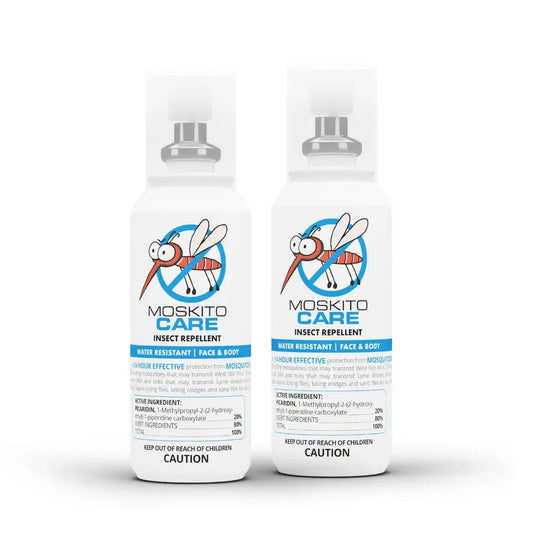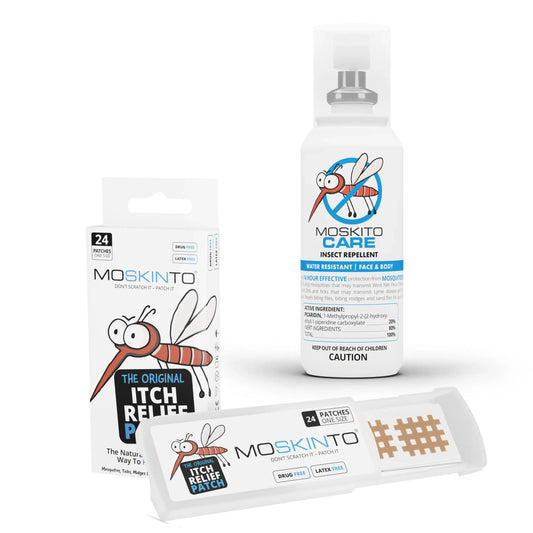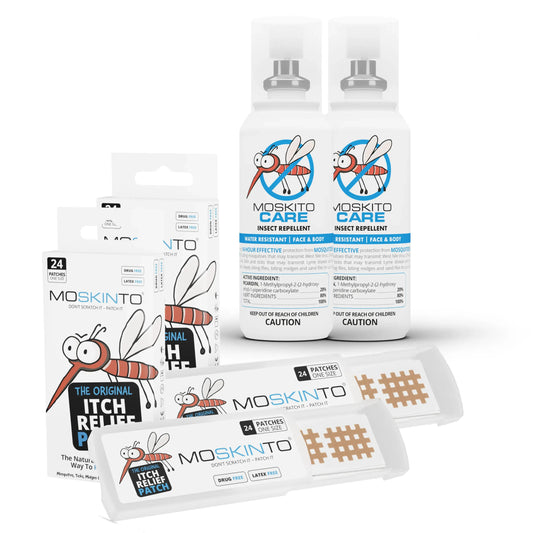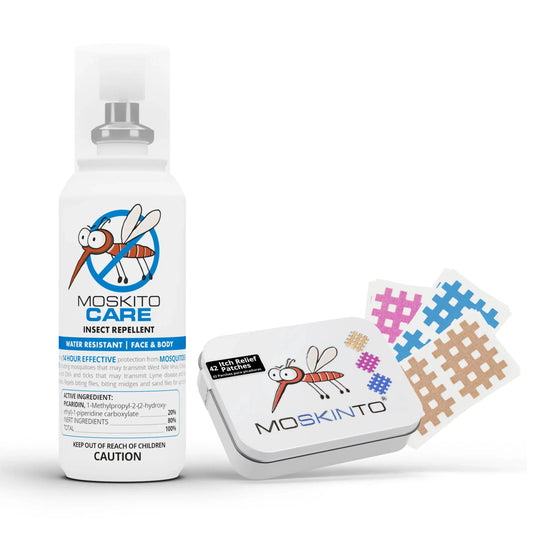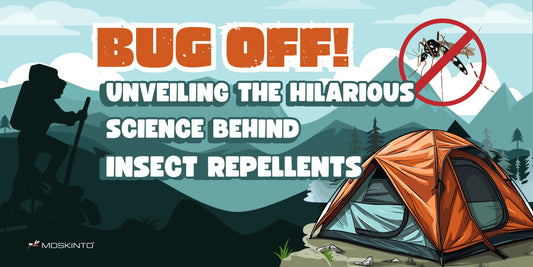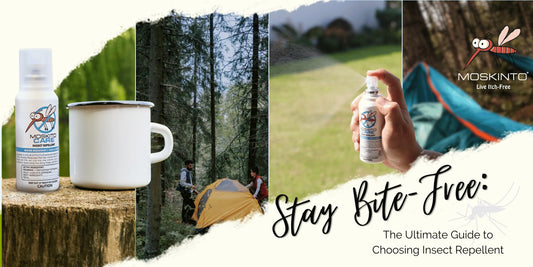Bug Off! Unveiling the Hilarious Science Behind Insect Repellents
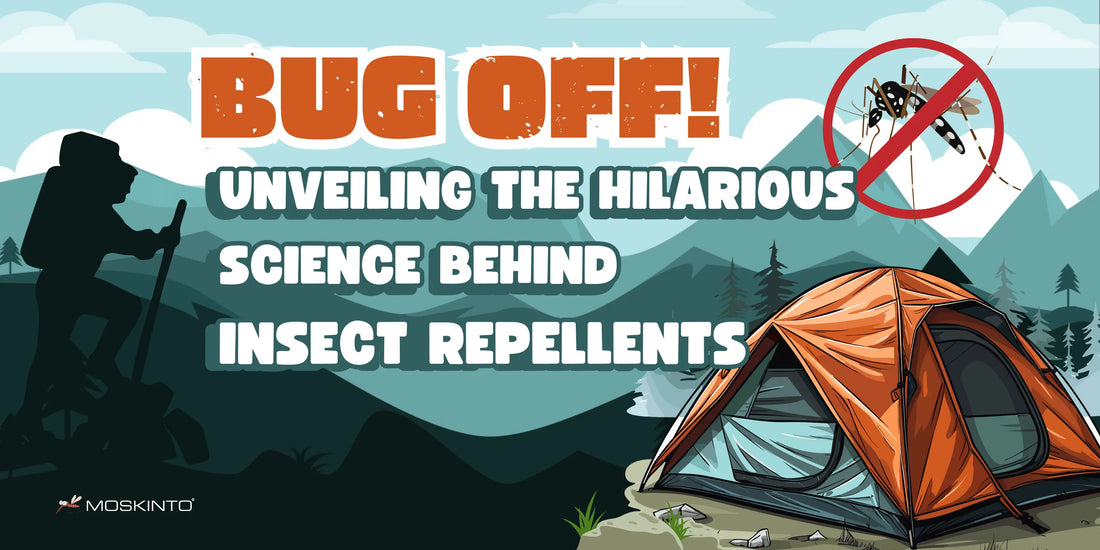
Welcome to the itchy, scratchy world of insects where they're just buzzing to get to know us better. But how do these tiny, winged admirers decide whom to land on for a quick nibble? %uD83E%uDD14 Prepare to embark on a scent-sational journey where we'll fly into the fascinating realm of bug brains and their sniffing superpowers. From the waltz of whiffs that guide mosquitoes to our skin to the hilarious behavioral shenanigans displayed when we spoil their party with repellents - we've got the buzz on what is the science behind insect repellents.
Active Ingredients That Keep the Bugs at Bay
When it comes to insect repellents, we have a lineup that would make any bug quiver in its six little boots! Let's meet the dream team of ingredients that send mosquitoes packing and leave ticks tremblin'.
DEET: The Frontline Defender in Insect Repellent
First up is the heavyweight champion of repellency, DEET. Don't let its funky smell throw you off-DEET is all business. This bug-bashing bruiser not only has a reputation that precedes it, but it also packs a punch that keeps the creepiest of crawlies at arm's length. And by arm's length, we mean they don't even want to be in the same zip code as you.
Picaridin: An Alternative to DEET
If DEET's the seasoned veteran, Picaridin is the new- kid-on-the-block that's making waves. It's a bit like the slick secret agent of skin protectors. With a less pungent odor and a smoother feel, Picaridin slips onto the scene to get the job done with style. Plus, bugs just can't handle its stellar stealth mode.
Oil of Lemon Eucalyptus: A Natural Option
Looking for something a bit more... au naturel? Enter Oil of Lemon Eucalyptus. It's the eco-friendly cousin in the insect repellent family. This oil has a hint of a spa-day scent, and it's like kryptonite to those pesky biters. It whispers to the mosquitoes, "Not today, darling," and they fly off to find a victim less chic and defended.
- DEET: The no-nonsense classic that keeps bugs at bay.
- Picaridin: The suave, undetectable guard against unwanted six-legged advances.
- Oil of Lemon Eucalyptus: The natural choice that tells insects you're off-limits, organically.
Unmasking the Eau de "Get Away From Me!" - The Chemistry of Repellents
Believe it or not, there's a science to telling bugs to buzz off, and it all boils down to the chemistry of repellents. You see, it's not magic, it's molecules! Let's dive into the potion-like concoction that keeps those pesky party poopers at a wing's length.
Chemical Compounds Commonly Used as Repellents
If you've ever wondered why mosquitoes don't seem to fancy the scent that keeps you spritzing more, thank chemical compounds like DEET, picaridin, and oil of lemon eucalyptus. These are the superstars in most insect repellents and their job description simply reads: 'Making humans unpalatable one spray at a time.'
- DEET - The granddaddy of repellents that makes mosquitoes say, "Ew, gross!"
- Picaridin - This one swoops in like a stealthy ninja, cloaking you in an invisible unappealing armor.
- Oil of Lemon Eucalyptus - Smells like a dream (well, to us) but screams "nightmare" to insects.
Breakdown of Natural vs. Synthetic Repellent Chemistry
Let's break it down even further, shall we? On one hand, you've got your natural repellents like citronella, which have insects turning up their noses and searching for more welcoming hosts. On the other hand, we have the synthetic maestros like DEET, which could practically have bugs filing for restraining orders.
- Natural repellents: They're like that organic, non-GMO snack you eat to feel good about yourself. But will it keep the flies away at your next barbecue? That's the real question.
- Synthetic repellents: These are the heavy hitters, backed by science to keep you as unappetizing as unsalted crackers at a buffet full of delicacies.
Bug Off: The Great Standoff Between Natural and Synthetic Insect Repellents
When it comes to shooing away pesky insects, the war has been waged between Team Natural and Team Synthetic. It's a classic case of Mother Nature versus Human Ingenuity. Let's dive into the nitty-gritty details of this epic standoff and see who emerges victorious in the bug-battling bonanza!
Advantages and Disadvantages of Going au Naturale
On one corner, wearing green leaves and sporting a fresh pine scent, we have Natural Repellents. These earth-friendly bug bouncers boast a cocktail of essential oils with names you can pronounce. They're like the organic farmers' markets of the repellent world - trendy, wholesome, and slightly overpriced.
- Advantages: They're eco-chic, less likely to irritate your skin, and they won't treat your liver like a science experiment. Plus, nothing says "I hug trees" quite like a whiff of eucalyptus and citronella on a warm summer evening.
- Disadvantages: Their efficacy can sometimes be as unpredictable as your mood on a Monday morning. Also, repeat applications are a must, making them high-maintenance companions for long-term outdoor escapades.
The Slick Tactics of Synthetic Compounds
On the other corner, clad in lab coats and flaunting clinical efficiency, we have Synthetic Repellents. With their DEETs, Picaridins, and IR3535s - these are the Terminators of the repellent domain: designed to protect, minus the frills and thrills.
- Advantages: They're the heavy hitters of the repellent league, bringing long-lasting protection that won't quit. These bad boys grab insects by the antennae and say, "Not today, Sir. Buzz off!"
- Disadvantages: They may come with a side of skin irritation and environmental concerns that make Mother Nature cry. Plus, if you're not careful, they might dissolve your sunglasses - and that's a fashion crime.
Don't Bug Out: A Witty Wrap-Up on Insect Repellent Wizardry!
Well, fellow outdoor adventurers and screen-door guardians, we've buzzed through the science of shooing away six-legged party-crashers and it's time to wrap up our zesty journey. From the antennae-tingling behavior of bugs to the secret spells in repellent chemistry, we've covered the A to Zika of keeping critters at a courteous distance.
Let's not forget the superheroes of this story-the active ingredients that pack a punch-showing bugs the 'no-fly zone' around our skin. We have dived into the sorcery of how repellents mystically mask us from their pesky perceptions and the options available, from sprays to creams, to keep us incognito.
Our saga included the clash between efficacy and evolution, as insects suit up in their natural resistance armor, and we even peeked into the cauldron of safety and environmental impact. It's been a tale of epic proportions, weighing the scales of nature vs. synthetics and deciphering the arcane regulations that govern our gallant defenses.
With a sprinkle of innovation, the future of repellent research is buzzing with possibilities-keeping us one step ahead in the age-old dance between humans and insects. And while we've armed you with knowledge, remember, the power of responsible repellant use is in your palms. For the good of human health and backyard barbecues, use your powers wisely!
In the world of insect repellents, science dons its lab coat and takes center stage, wielding a potent mix of knowledge and innovation to combat our pesky, blood-thirsty foes. Imagine a theatrical performance where clothing becomes a fortress, shielding us from the relentless advances of disease-carrying mosquitoes. Through a magical potion, often in liquid form, our trusty repellents form an invisible force field, deterring these buzzing adversaries with the finesse of a fire-breathing dragon. But wait, the plot thickens! Each species of mosquito brings its own villainous twist, with leading roles played by the likes of the dengue fever dancer, the West Nile virus warrior, and the malaria marauder. As the curtains draw, science takes a bow, leaving us armed with knowledge and equipped with repellents, ready to face the buzzing orchestra of nature with a knowing grin.
